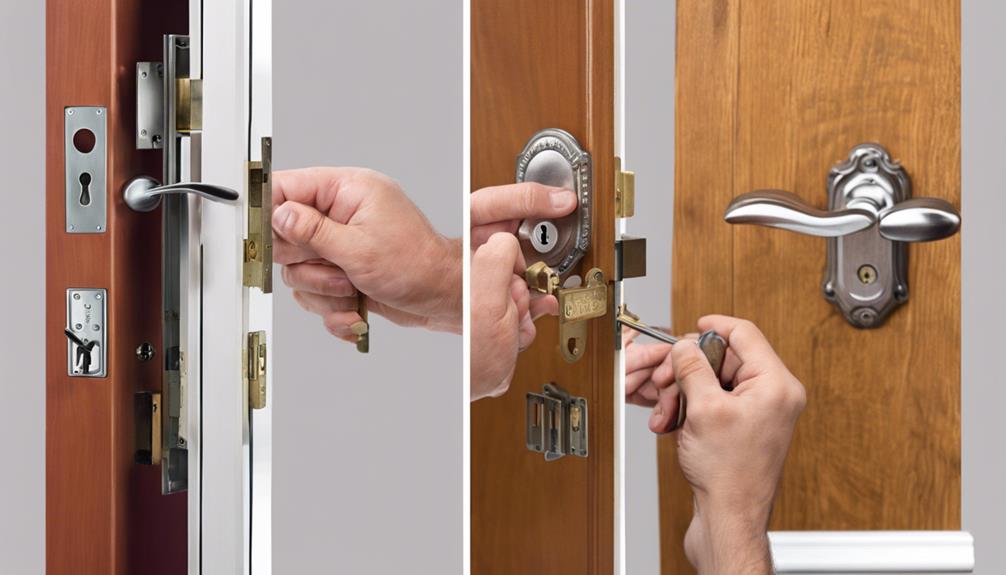Rekeying and changing locks are two methods to secure your home or business, each serving different needs. When you rekey a lock, you’re altering the internal mechanism so the old key won’t work anymore. This solution is cost-effective and maintains the existing hardware, making it ideal if you’re managing multiple locks or need a quick security refresh without changing the lock’s appearance. Changing locks, on the other hand, involves replacing the entire lock mechanism with a new one, which can enhance security features and allow for modern upgrades like electronic systems. Weighing the benefits of each option can help you decide which suits your security needs better.
Understanding Rekeying
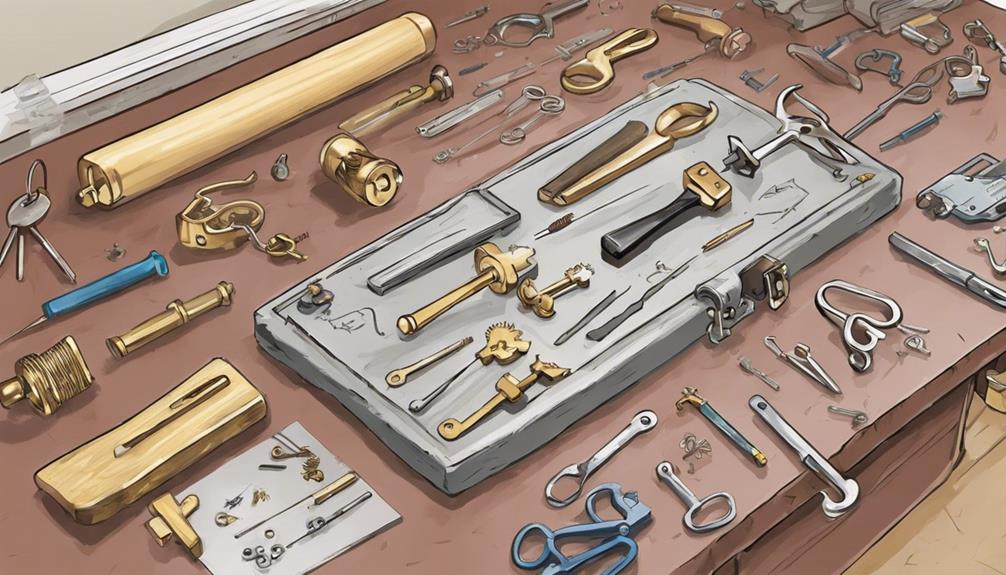
Rekeying often provides a secure, cost-effective alternative when you need to change access without replacing your locks. Imagine you’ve lost your keys, or you’re just fed up with your ex who still has a spare. Instead of replacing the entire lock, a locksmith tweaks the insides, the pins or tumblers, to fit a new key. It’s like giving your lock a mini-makeover! This trick works with various types of locks, so you’re not stuck with old-fashioned ones. You can maintain your home’s Victorian charm without sacrificing security. Plus, if you’re aiming for less key chaos, rekeying can unify your keychain. You’ll have fewer keys to juggle, and who wouldn’t want that?
Benefits of Rekeying
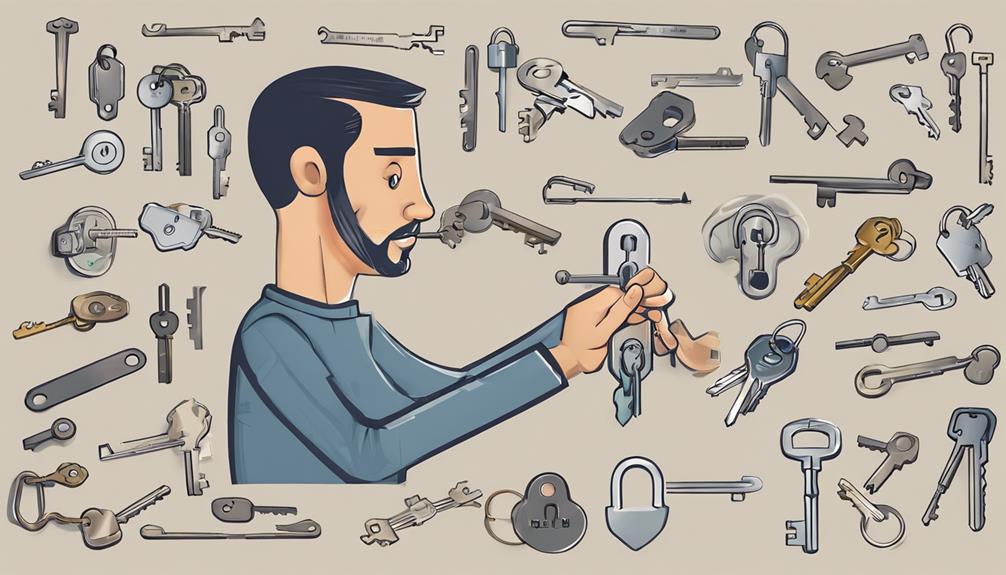
You’ll save money and maintain your existing hardware when you opt for rekeying instead of replacing your locks. This budget-friendly move is not just about avoiding the splurge on new shiny gadgets; it’s about being smart with what you’ve got. Rekeying is the DIY facelift for your home’s security—cost-effective, yet offering that fresh-key feel. Plus, it adds a layer of security faster than you can say “Where did I put those darn keys?”
It’s also super convenient, especially when you’ve got multiple locks to manage. Imagine having matching keys that actually make sense—no more juggling a janitor-sized key ring! Practical, right? With rekeying, you streamline access without breaking the bank or a sweat.
Understanding Lock Changing
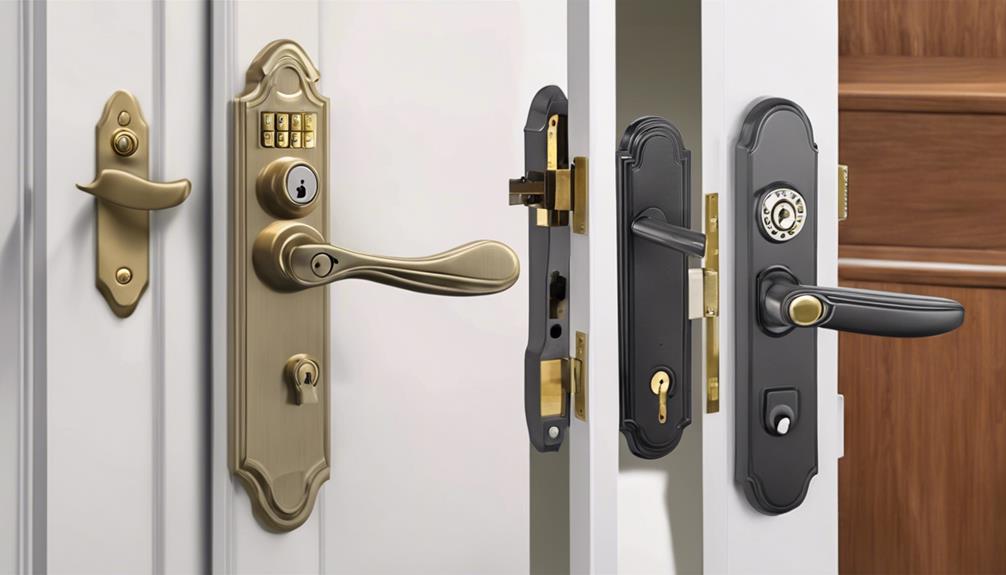
When it’s time to enhance your home’s security or update its style, changing locks offers a complete solution by replacing the entire lock mechanism with a new one. If you’re tired of your old, creaky lock that screams “come on in” to every passerby, lock changing is your go-to. This isn’t just about swapping out rusty old pieces; it’s about upgrades to security features and aesthetic preferences. Want a lock that matches your new, modern door? Or maybe you’re switching to those fancy keyhole locks from a different brand? Locksmiths will hook you up with matching keys and the latest modern lock technologies. It’s a complete replacement service, ensuring everything clicks perfectly, both metaphorically and literally.
Benefits of Changing Locks
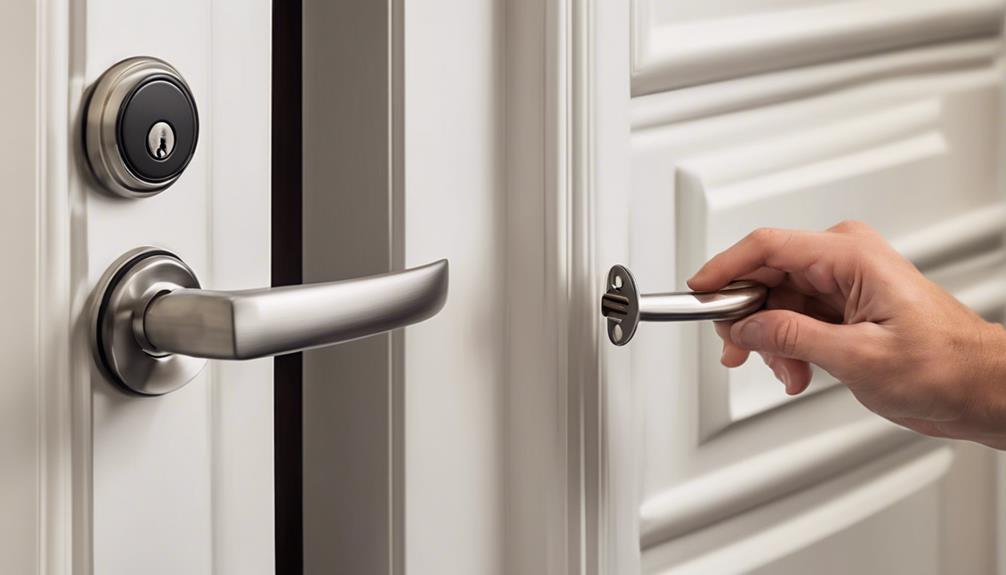
Changing locks offers significant upgrades to your property’s security, allowing for the integration of advanced systems and modern conveniences. When you opt for electronic locks or a keyless entry system, you’re not just upgrading your security; you’re joining the elite club of “I don’t need keys” cool kids! Plus, nothing says “welcome” like a gadget that dazzles your guests.
| Feature | Why Change? | Cool Factor |
|---|---|---|
| Keyless entry system | No more fumbling for keys | High-tech welcome mat |
| Electronic locks | Custom access codes | Feels like a spy movie |
| High security options | Better resistance to tampering | Your home becomes Fort Knox-lite |
| Compatibility | Matches new home tech ecosystems | Seamless tech integration |
Rekeying Vs. Changing Costs
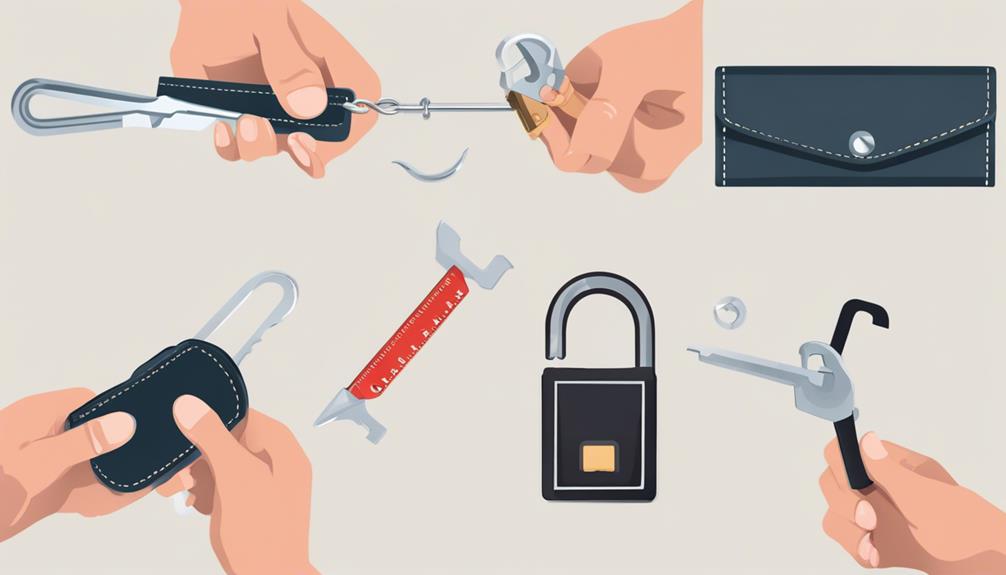
While the benefits of changing locks are clear, it’s also essential to ponder the cost differences between rekeying and replacing your locks entirely. Let’s break it down, shall we? Opting to rekey a lock can be quite cost-effective, generally setting you back about $50 to $100, mostly for the labor—not the parts. On the flip side, to change the locks, especially if you summon a local locksmith, you’re looking at around $75 per hour. And if you’re DIY-savvy, rekeying kits are a steal at $10 to $25. So, next time you misplace those house keys, remember, whether you rekey or go for new keys entirely might just depend on your wallet’s mood swings!
When to Rekey or Change
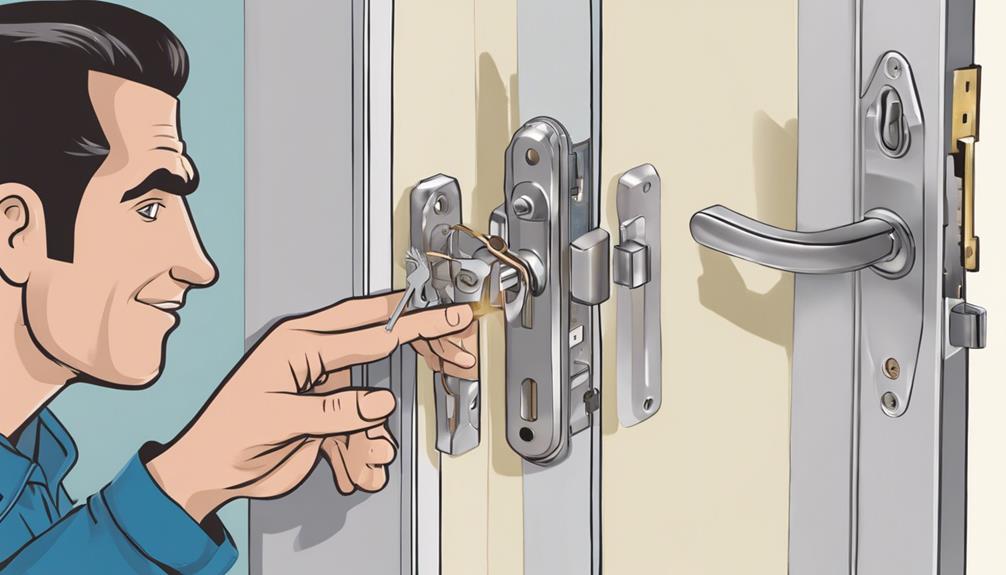
When deciding whether to rekey or change your locks, you should consider both cost implications and your security needs. If you’re looking to save money and maintain the same level of security, rekeying is often the more affordable option. However, if your goal is to enhance security or update the style of your locks, changing them might be the better choice.
Cost Considerations
Considering the costs involved, you’ll find that rekeying is typically less expensive than replacing locks. The main expense with rekeying is labor, not the parts, which makes it quite cost-effective. If you’re feeling adventurous, DIY kits range from $10 to $25, adding a pinch of budget-friendly spice to your lock dilemma. Meanwhile, changing locks might hit your wallet with an average cost of about $75 per hour, depending on the complexity of your lock’s mood swings. If you’ve got a modern home, you might try your hand at changing locks yourself. However, for those tricky older homes or intricate master key setups, you’d better call in the professional cavalry!
Security Enhancement Needs
You should rekey your locks when moving into a new home to make sure previous occupants no longer have access. It’s a cost-effective way to prevent unauthorized access without breaking the bank. Now, if you’re feeling fancy or paranoid (or both), consider changing your locks. Especially if you want those high-tech options that make you feel like a secret agent every time you come home. Changing locks not only enhances security but can also give your door a fresh, stylish look—talk about aesthetic updates! Whether you choose rekeying your locks or changing locks entirely, you’re stepping up your security system game. Either way, you’re making a smart move towards security enhancement.
Frequently Asked Questions
Can Rekeying Affect the Warranty of My Lock?
You’re wondering if rekeying can affect your lock’s warranty, right? Generally, it doesn’t. Most lock manufacturers consider rekeying a standard maintenance procedure, so it typically preserves the warranty. However, it’s always a good move to check the manufacturer’s guidelines. Changing the lock entirely is a different story and might void the warranty if not handled by an authorized professional. So, keep it simple and stick to rekeying when you can!
Are Older Locks Eligible for Rekeying?
Yes, you can rekey older locks, but it depends on their condition and type. If they’re in good shape and have standard keyways, rekeying is a practical choice. However, some antique or special locks might not be suitable due to unique mechanisms. It’s wise to have a professional locksmith evaluate your old locks to see if rekeying is possible, ensuring your home’s security without the need for complete lock replacement.
Is Lock Changing a Diy-Friendly Task?
Yes, changing locks can be a DIY-friendly task for you if you’re handy with basic tools like a screwdriver. Many modern locks are designed for easy installation, allowing you to swap out your old locks without much hassle. However, make sure you follow the manufacturer’s instructions to avoid any mishaps. If you’re unsure, it might be safer to consult a professional locksmith to handle the job.
Do Digital Locks Require Rekeying or Changing?
You don’t need to rekey digital locks; they’re like chameleons, simply changing colors with a few taps. Instead of fussing with old-fashioned pins and tumblers, you update them by changing codes or tweaking their software. It’s way more about pressing buttons and less about turning keys. So, skip the locksmith and just refresh your digital lock settings when security concerns loom or you just feel like it’s time for a change.
How Long Does a Professional Take to Change a Lock?
If you’re looking to switch out your locks, expect a professional locksmith to take about 30 minutes to an hour to change a standard lock. However, if you’re upgrading to a complex or high-security system, it could take a bit longer. Factors like the lock type, the door’s condition, and the existing hardware can also play a role in the time it takes to get your new lock up and running.

